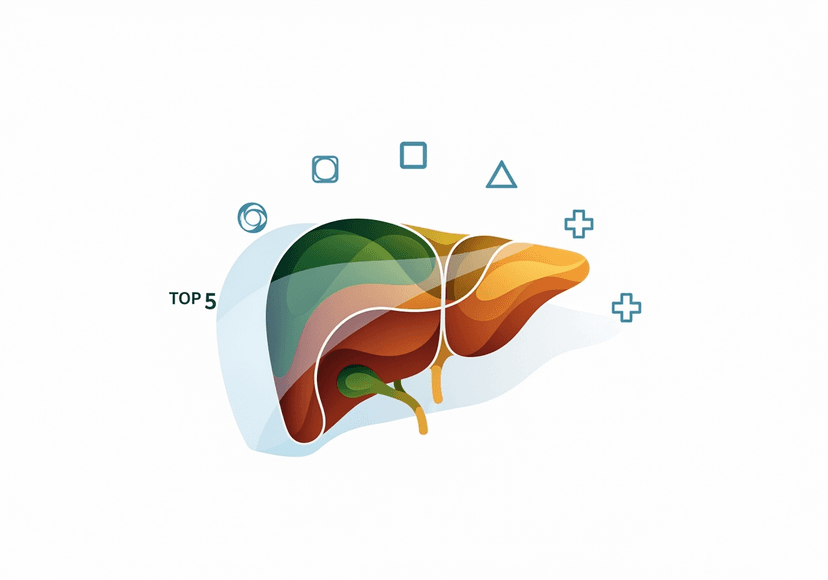
The Importance of Liver Function Tests After Transplant
02 Oct, 2024
 Healthtrip
HealthtripLiver transplantation is a life-saving surgical procedure that replaces a diseased or damaged liver with a healthy one, offering a new lease on life to individuals suffering from end-stage liver disease. While the transplant itself is a significant milestone, it's merely the beginning of a lifelong journey of care and monitoring to ensure the new liver functions optimally. One crucial aspect of post-transplant care is liver function tests, which play a vital role in detecting potential complications, monitoring the liver's health, and adjusting treatment plans accordingly. In this article, we'll delve into the importance of liver function tests after transplant, exploring the reasons why they're essential, what they entail, and how they contribute to a successful transplant outcome.
Why Liver Function Tests Are Crucial After Transplant
Liver function tests are a series of blood tests that assess the liver's ability to perform its various functions, including detoxification, metabolism, and production of essential proteins and nutrients. After a transplant, these tests are crucial for several reasons:
Most popular procedures in India
Early Detection of Rejection
One of the primary concerns after a liver transplant is rejection, which occurs when the body's immune system attacks the new liver. Liver function tests help identify early signs of rejection, enabling prompt intervention and treatment to prevent irreversible damage. By monitoring liver enzymes, bilirubin levels, and other biomarkers, healthcare providers can detect subtle changes in liver function, allowing for timely adjustments to immunosuppressive medications and other therapies.
Wellness Treatments
Give yourself the time to relax
Lowest Prices Guaranteed!

Lowest Prices Guaranteed!
Monitoring for Infections and Complications
Liver function tests also help identify potential infections, such as hepatitis or bacterial infections, which can be particularly dangerous in immunocompromised individuals. Moreover, these tests can detect early signs of complications like liver fibrosis, cirrhosis, or liver cancer, enabling proactive management and treatment. By staying vigilant, healthcare providers can prevent minor issues from escalating into major problems.
What Do Liver Function Tests Entail?
Liver function tests typically involve a series of blood tests that assess various aspects of liver function, including:
Liver Enzymes
Liver enzymes, such as aspartate transaminase (AST) and alanine transaminase (ALT), are proteins produced by the liver. Elevated levels of these enzymes can indicate liver damage or inflammation. By monitoring liver enzyme levels, healthcare providers can gauge the liver's response to the transplant and detect potential issues.
Bilirubin Levels
Bilirubin is a yellow pigment produced during the breakdown of hemoglobin in the liver. Elevated bilirubin levels can indicate liver dysfunction or obstruction of the bile ducts. Monitoring bilirubin levels helps healthcare providers identify potential issues with bile production or excretion.
Coagulation Studies
Coagulation studies assess the liver's ability to produce clotting factors, which are essential for blood coagulation. Abnormal coagulation studies can indicate liver dysfunction or bleeding disorders.
Frequency and Timing of Liver Function Tests
The frequency and timing of liver function tests vary depending on individual circumstances, but generally, they're performed:
Immediately After Transplant
Initial liver function tests are conducted immediately after transplant to establish a baseline for future comparisons. These tests help identify any potential issues related to the transplant procedure or early rejection.
Regularly During the First Year
Frequent liver function tests are performed during the first year after transplant to monitor the liver's function and detect any potential complications. The frequency of these tests may decrease over time as the liver function stabilizes.
Ongoing Monitoring
Lifetime monitoring is essential to ensure the liver continues to function optimally. Regular liver function tests help identify any potential issues early, enabling prompt intervention and treatment.
Conclusion
In conclusion, liver function tests are a vital component of post-transplant care, enabling healthcare providers to monitor the liver's function, detect potential complications, and adjust treatment plans accordingly. By understanding the importance of these tests and what they entail, individuals who have undergone a liver transplant can take an active role in their care, ensuring the best possible outcome for their new liver.
Related Blogs

How Healthtrip Ensures Quality & Safety in Liver Transplant Procedures
Detailed guide on liver transplant, featuring doctors, hospitals, risks, recovery,

End-to-End Logistics for Liver Transplant with Healthtrip's Support
Detailed guide on liver transplant, featuring doctors, hospitals, risks, recovery,

Healthtrip's Care Coordinators: Your Support During Liver Transplant
Detailed guide on liver transplant, featuring doctors, hospitals, risks, recovery,

Top 5 Indian Hospitals for Liver Transplant
Detailed guide on liver transplant, featuring doctors, hospitals, risks, recovery,

Post-Liver Transplant Diet and Lifestyle Tips
Detailed guide on liver transplant, featuring doctors, hospitals, risks, recovery,

Common Risks in Liver Transplant and How Healthtrip Manages Them
Detailed guide on liver transplant, featuring doctors, hospitals, risks, recovery,










